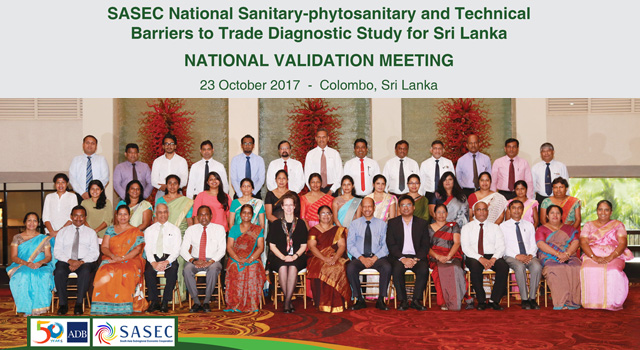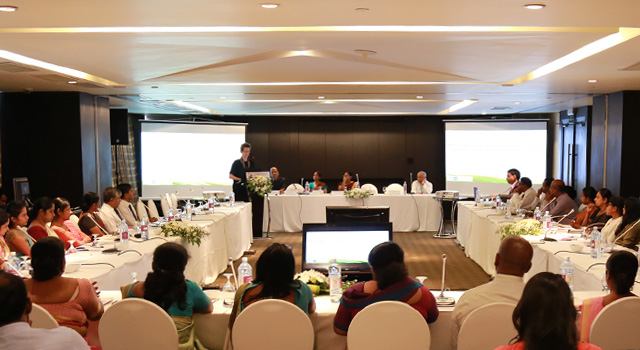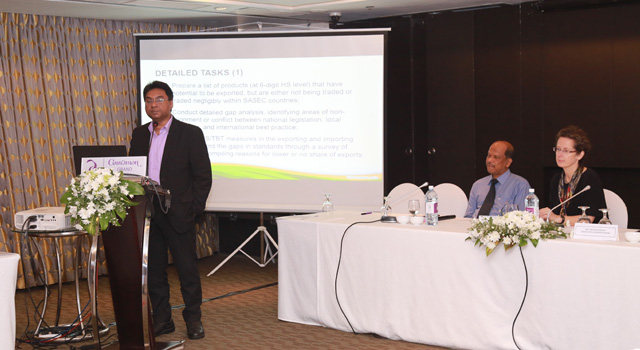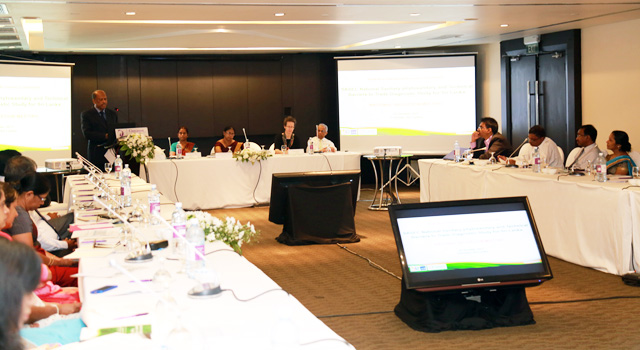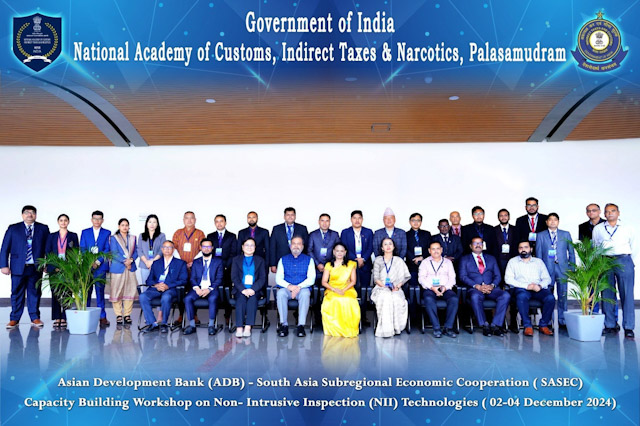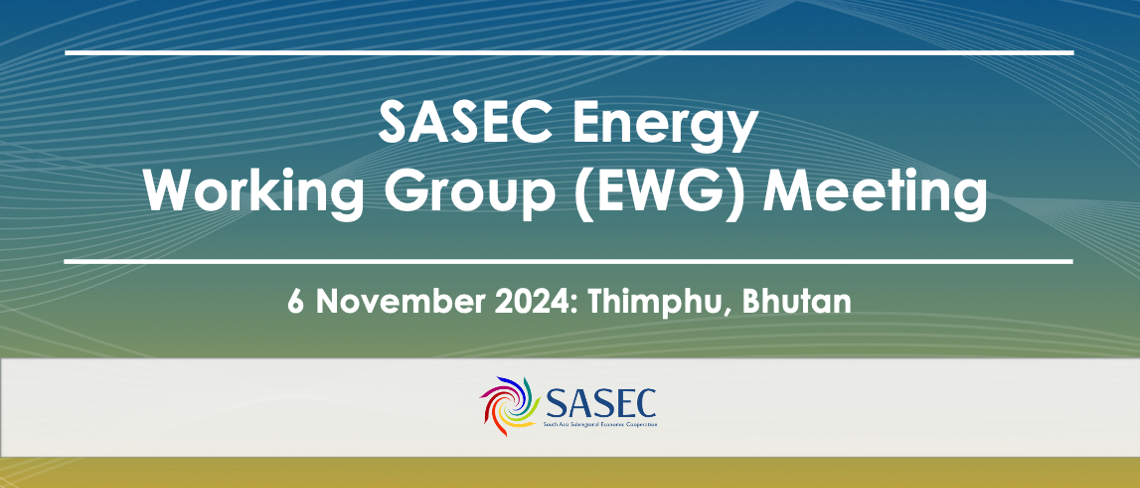
SASEC SPS-TBT Diagnostic Study for Sri Lanka: National Validation Meeting
23 Oct 2017
The Sri Lanka Ministry of Development Strategies and International Trade, together with the Asian Development Bank (ADB) held a national validation meeting to share the draft final findings and recommendations of a national diagnostic study on sanitary-phytosanitary (SPS) measures and technical barriers to trade (TBT), launched in February 2017 under the trade facilitation agenda of the South Asia Subregional Economic Cooperation (SASEC) Program. The SPS-TBT national core group for Sri Lanka, and public and private stakeholders participated in the validation meeting on 23 October in Colombo, Sri Lanka, and provided comments and feedback on the draft for incorporation in the final diagnostic study.
Increasing importance is directed toward addressing non-tariff measures, which occur frequently in the form of standards and technical regulations, especially SPS and TBT, given the reduction in tariffs over the last 30 years due to multilateral and bilateral obligations as well as autonomous economic liberalization. In 2013, SASEC members agreed to develop mutual cooperation processes in the diverse and challenging area of SPS-TBT-related issues to address these barriers. As a first step, national diagnostic studies are under preparation in Bangladesh, Bhutan, India, Maldives, Nepal, and Sri Lanka. Wide-based stakeholder validation meetings are being held in each country as the draft final reports become available.
Outcomes of the Sri Lanka validation meeting include:
- Presentation of patterns of Sri Lanka’s import and export trade with other SASEC countries, and identification of the top potential export goods for each of the SASEC countries, together with their respective SPS-TBT measures;
- An overview of the legislative environment, of institutional arrangements and capacities, and of infrastructure capacities and constraints, for both SPS and TBT in Sri Lanka;
- Identification of various and specific standards, regulations, and procedural obstacles that impede trade of the identified potential export commodities from Sri Lanka with each of the other five SASEC countries, and clarification whether these obstacles are SPS-TBT-related, or due to other non-tariff measures and barriers;
- Examination of domestic barriers, including for example, the lack of easy access to information on import and export requirements; no systematic advance notification system; a high number of inspections; and delays in issuance of approvals and certificates;
- Discussion and additional suggestions on preliminary recommendations for how to address SPS-TBT-related challenges faced by Sri Lanka.
Ms. Chandani Wijayawardane, Secretary, Ministry of Development Strategies and International Trade delivered the inaugural address, noting Sri Lanka’s recently approved National Export Strategy, and the need to better understand the gaps in supply-driven export trade from Sri Lanka to most effectively implement the Strategy. Trade facilitation remains a high priority for the Government, and the findings of the SPS-TBT diagnostic study are pertinent and useful for Sri Lanka given ongoing FTA negotiations with India and with Bangladesh.
More than 40 participants from import-export trade-related government agencies and a wide spectrum of private sector associations and organizations participated in the validation meeting. Highly productive discussions concluded in additional inputs being agreed for the diagnostic study, which will be finalized by the end of 2017. ADB supported the validation meeting under regional technical assistance funding.



